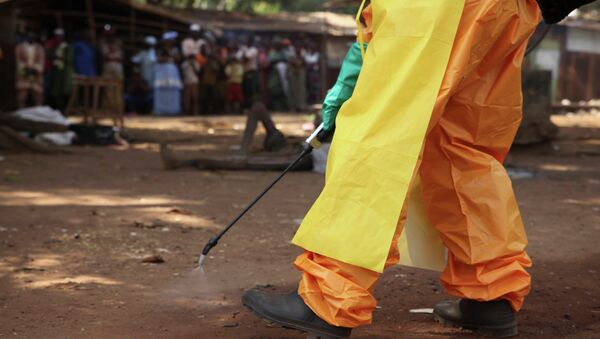Liberia, Sierra Leone, and Guinea have been the most affected countries.
"Sierra Leone declared the end of Ebola transmission on 7 November 2015. Guinea marked this milestone on 29 December 2015…Liberia is one day away from declaring the end of the recent flare-up in the country. That means that tomorrow — January 14th- all known chains of transmission will have been stopped in West Africa," Ban Ki-moon told the UN General Assembly on Wednesday.
Earlier in the day, Russian President Vladimir Putin announced that Russia had developed and registered a highly-effective vaccine against the deadly Ebola virus. However, according to the UN Secretary General, Ebola outbreaks are possible in 2016 despite international efforts aimed at eradicating the virus.
"We can anticipate future flare-ups of Ebola in the coming year. Liberia’s experience in combating two flare-ups has shown the resilience and capacity of the affected countries to reactivate emergency response mechanisms and contain the virus. But we also expect the potential and frequency of those flare-ups to decrease over time," Ban said on Wednesday.
Ebola is spread through direct contact with the bodily fluids of those infected. Some of the early symptoms include a sudden onset of fever, fatigue and sore throat, which are followed by vomiting and diarrhea. People remain infectious as long as their blood contains the virus, according to the WHO.



